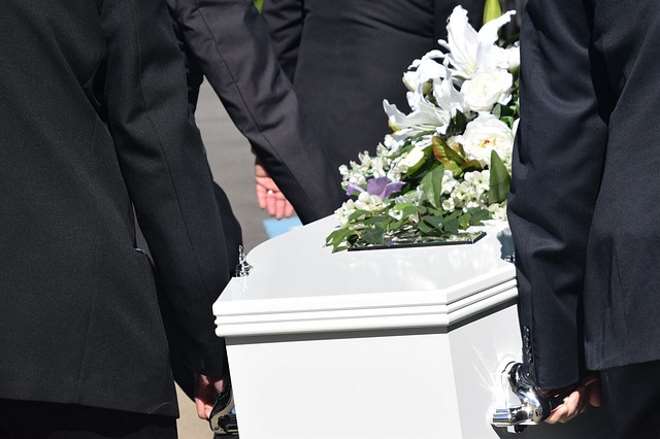Best Cremation Services USA 2025 Guide: Funeral and Memorial Options Selection
Cremation is increasingly chosen in the United States. This 2025 guide explains common cremation types, legal and procedural steps, and funeral and memorial options, plus cultural and environmental considerations to help families make informed, respectful decisions during end-of-life planning.

Understanding the Types of Cremation Services in the United States
Cremation offers flexibility and can be more affordable than traditional burial. Common types include:
- Direct Cremation: A simple, low-service option where the body is transported to a crematory and cremated without a prior funeral service. Families receive the cremated remains afterward. Costs and processes vary by provider and location.
- Traditional Cremation with Funeral or Memorial Service: Includes a funeral or memorial service before cremation, which may involve visitation, chapel services, or graveside ceremonies.
- Alternative Cremation Methods (Alkaline Hydrolysis / “Aquamation” / Bio-cremation): A lower-emission method using water and alkali to reduce the body. Availability and legal status vary by state. Verify environmental claims and provider offerings.
- Donation to Science with Subsequent Cremation: The body is donated for medical education or research, with cremation and return of remains afterward. Policies and costs vary by institution.
Legal and Procedural Framework for Cremation
Requirements differ by state, county, and provider, but typically include:
- Authorization: Written consent from the person legally entitled to make disposition decisions, sometimes requiring notarization.
- Permits and Waiting Periods: Many jurisdictions require a permit from a coroner, medical examiner, or local authority, and some have a waiting period after death.
- Identification and Chain of Custody: Funeral homes and crematories use ID tags, documentation, and custody procedures to ensure correct handling.
- Provider Policies: Rules on storage, unclaimed remains, and final disposition vary. Review them in advance.
Always confirm local requirements with authorities and the chosen provider.
How to Choose the Right Cremation Service and Memorial Options
Consider the following factors:
- Deceased’s Wishes and Values: Follow documented or expressed preferences, including religious and cultural practices.
- Family Involvement: Include family members in planning for shared decision-making and emotional support.
- Provider Reputation and Experience: Check licensing, reviews, and cultural competence.
- Range of Services: Decide between a basic direct cremation or personalized options like viewings, ceremonies, or keepsakes.
- Environmental Considerations: Ask about eco-friendly options such as alkaline hydrolysis, biodegradable urns, or memorial reefs. Verify environmental claims independently.
- Pricing Transparency: Request itemized price lists and clarify extra fees.
- Pre-Planning and Pre-Payment: Understand how funds are protected, refund terms, and whether arrangements are transferable if you relocate.
Funeral and Memorial Options After Cremation
Cremation offers a variety of remembrance choices:
- Interment of Urns: Burial in cemeteries, placement in columbariums, or family plots.
- Home Retention: Keeping the urn at home in a respectful setting.
- Ash Scattering: Must comply with local, state, and federal regulations; may require permits.
- Memorial Artifacts: Incorporating ashes into jewelry, glass art, reefs, or other keepsakes.
- Personalized Ceremonies: Custom services, video tributes, and gatherings reflecting the individual’s life.
Cultural and Religious Influences on Cremation Choices
Views on cremation vary:
- Christianity: Acceptance varies; some denominations prefer burial, others accept cremation.
- Hinduism & Buddhism: Commonly practice cremation for spiritual reasons.
- Islam: Generally prohibits cremation, preferring burial.
- Judaism: Traditionally favors burial, though some movements permit cremation.
- Latter-day Saints (Mormonism): Burial is preferred, though cremation may be allowed in certain cases.
When faith matters, consult religious leaders or community authorities.
Special Considerations
- Large or Bariatric Decedents: May require special equipment or containers, adding costs.
- Unclaimed Cremated Remains: Policies on retention timelines and final disposition differ.
- DNA and Forensic Issues: Usable DNA recovery from cremated remains is generally not possible due to high temperatures.
Conclusion
Choosing cremation in 2025 involves balancing personal wishes, cultural and religious values, legal requirements, environmental factors, and costs. Laws and practices vary by location and provider, so confirm specifics locally and secure written agreements to ensure your decisions are respected.
Sources:
- Cremation Institute – Direct Cremation Guide and Cost Overview
- The Ultimate Guide to Cremation – US Funerals
- How to Select the Best Cremation Services – Heritage Oaks Memorial Chapel
Disclaimer: Cremation service prices, availability, and regulations vary by state, county, and provider. Always verify information with local funeral homes or cremation service providers to ensure compliance with current laws and regulations.




